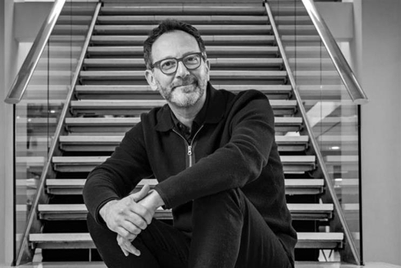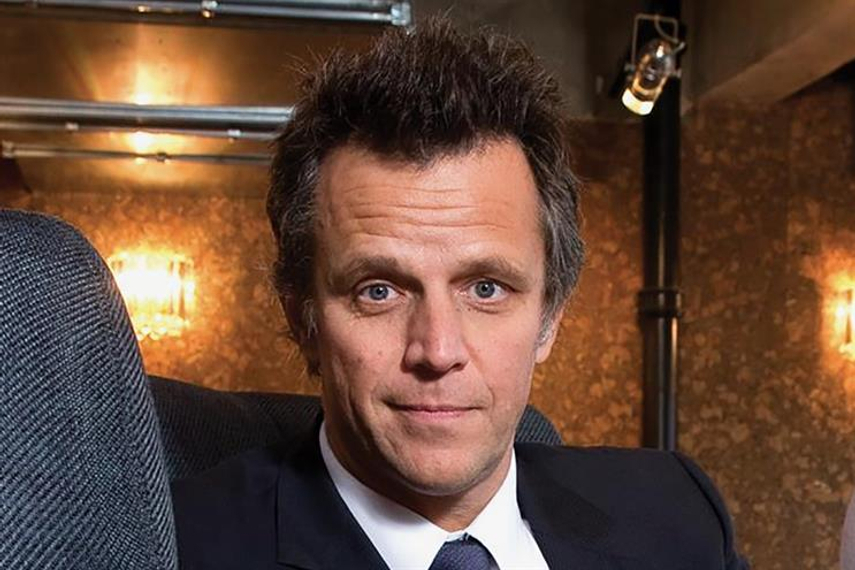
Publicis Groupe's latest results show that the agency group has “moved beyond recovery” and is now “proving” it can grow above pre-pandemic levels, Arthur Sadoun has told Campaign at its Q3 results.
The chairman and chief executive of Publicis Groupe was upbeat about the strength of the agency group's improving performance as its revenue was up 5% in Q3 compared with 2019, after a 2% rise in Q2 and a flat Q1.
Publicis Groupe was struggling before the pandemic, with declining revenues in 2019, and Sadoun said linking data and technology more closely with both creative and media and the acquisition of data business Epsilon have helped the group weather the pandemic and grow again in 2021.
The share price rose to almost a €59, its highest level since July 2018, following the results.
Sadoun also discussed the war for talent, pitch activity and the recent leadership shift at Bartle Bogle Hegarty after dropping the agency's global CEO role.
Campaign: Q2 surprised on the upside as revenues bounced back above pre-pandemic levels. What were the key trends during Q3? Did anything surprise you?
Sadoun: As in Q2, we are delivering another strong quarter in Q3, with organic growth at 11.2%. All of our regions contributed to this performance with double-digit growth, notably the US, which grew 10.9%, Europe at 10% and Asia at 12.5%.
Our data and tech capabilities continued to outperform, particularly in the US, where Epsilon delivered +13% and Publicis Sapient +20% organic growth.
Two years after the acquisition of Epsilon, I wouldn’t say it is a surprise that we continue to capture a disproportionate share of the shift in client investment towards digital media, commerce and DTC [direct-to-consumer]. But it is definitely very good news, that enables us to once again raise our full-year guidance across every KPI.
A lot of investors look at the two-year revenue stack, comparing 2021 with 2019. We haven’t seen many Q3 results yet but we saw in Q2 that there was a big gap between established agency groups, including Publicis, which was up 2% on a two-year basis, versus the tech groups and new agency groups, such as S4 Capital, which grew 50% or more. Do you worry about this gap? What can you do to grow faster? Are there underperforming parts of the business that you might downsize or sell?
First, investors are right to look at revenue on a two-year basis. In Q3 we are delivering growth of 5% versus 2019 and actually +8% for the US, with Epsilon at +14% and Publicis Sapient at +17%.
It is now clear that we have moved beyond recovery and are proving our ability to grow compared to pre-pandemic levels, which is what really matters.
Second, we shouldn’t compare apples with oranges. The tech companies are way bigger than we will ever be. S4 is in niche markets on segments where we are growing at the same pace, like Epsilon
We are starting to see some sectors and countries suffer from labour shortages, supply chain disruption and rising inflation. Are you seeing any impact already on client behaviour? How much do you worry that this disruption could harm the economic recovery? Is there any upside to inflation – for example, if clients invest in their brands to justify price increases and encourage consumers to buy their products?
In Q3 we have not seen any impact from supply chain shortages or rising inflation when it comes to investment. Some sectors, like the automotive industry, are definitely seeing supply chain disruption, and we are by our clients’ side, making sure they can manage their product portfolio in the best way, helping them to maximise their investment depending on their inventory, and bringing them the right level of expertise and flexibility.
As for inflation, we haven’t seen any impact here either, but there is no doubt that investing in your brand to justify your premium is always the right call to make.
There have been a lot of new-business reviews this year. How do you decide whether to pitch when there is so much up for review? Are you being more picky? And do you see pitch activity continuing at the same levels in 2022?
Even in a very busy new-business period, we never forget that the first thing that matters is our existing clients. Particularly in these challenging times, we owe it to them to ensure our partnership is stronger than ever. So, yes, we are making sure we choose our new-business battles carefully. But when we are in, we are all in, and our rule is simple: the people who present are the people who will deliver.
With this approach and our differentiated model we have been leading the new-business rankings over the past three years, and are seeing a real acceleration in 2021 with wins like Stellantis globally, Samsung in the US, L’Oréal in China, Planet Fitness, TD Bank’s North America media and Walmart’s US data and media business.
Some pitches are taking 12 months and are costly, even when they are conducted by video instead of face to face. Do you have any advice for clients and pitch consultants about running long reviews?
What we are seeing more and more is that clients are realising that they need shorter processes with fewer agencies. They understand that, as well as being good for their agency partners, it is also in their interest, as pitch processes are a major disruption when everyone should be focusing on delivering and accelerating on the day-to-day business.
There has been a lot of talk about a talent shortage across the ad industry since Q2 and big salary increases in the war for talent as client spend has bounced back. Can you give us any idea about the scale of vacancies at Publicis and how that might compare with a normal year?
No doubt, "The Great Resignation" is a reality in our industry and in many, many others. At Publicis, our shift to a platform organisation and the implementation of Marcel [an internal staff platform] has allowed us to adapt and resist at the height of the crisis, saving thousands of jobs, and is today facilitating our growth, as can be seen in the increase in our net headcount by 10% [a net increase of about 8,000 people] since the start of the year.
What can Publicis do to attract and retain talent—is it simply a case of paying more money? Are you seeing any signs that the talent market is becoming unsustainable – for example, an inexperienced person being over-promoted to a much more senior role when they move to a rival company?
Attracting and retaining talent in the coming months is going to be paramount. Yes, money matters and we need to make sure people can progress financially.
But this alone is not enough. They need to feel that they are part of a journey that gives them real perspectives for the future. Part of that comes from the vision and ambition you set at company level, and how you share this with your teams. And part of it comes from making sure everyone is able to progress in a hybrid world. This last point is going to be a huge topic for the future.
When I was starting out in this industry, you grew thanks to the things you learned walking through the corridors of your agency, by raising your hand for opportunities that were above your pay grade, or by coming through with a big idea that may have nothing to do with your role. In a hybrid world [between the office and home], finding those opportunities to grow has become increasingly complex, and we need to make sure we find ways to compensate for that. This is actually the exact brief I gave to our Marcel teams to resolve for 2022.
What do the recent changes at BBH mean for its future? With no global CEO, and power shifting to agency leaders in local markets, it looks like you are giving up on BBH’s global aspirations. Perhaps a micro-network with only seven offices has limited appeal for global clients.
You should look at the composition of the previous global board. We are moving from a governing body that was roughly 50% French, 50% British, with mainly corporate members like the Groupe CFO and myself, to a diverse team of BBH makers and leaders from around the world.
If someone had told me 20 years ago when I was the managing director of a creative agency in Paris, that I would one day be responsible for the agency behind the iconic Levi’s "Laundrette" spot, I wouldn’t have believed it. Having the chance to oversee BBH and interact with legends like Sir Nigel Bogle is a real privilege for me, and one I take very seriously.
It’s my duty to make sure that the Black Sheep can continue to deliver outstanding work, while looking forward. I actually think that having a hot shop network, with a unique creative culture, that can seamlessly tap into Publicis Groupe’s best-in-class data and tech capabilities, is extremely appealing for global clients.
Environmental sustainability and ESG have risen up the agenda and the COP26 summit is about to take place. What are you doing to encourage clients to behave in a more sustainable way and hold them to account? Will you turn down business?
The problems of our times are enormous, and fundamental issues like ESG can only be solved by the hard work of collaboration and innovation. Our clients don’t need encouragement, they are very aware of the issues they urgently have to address. What they need are partners and solutions to help them attain the environmental/social impact our world truly requires. This is exactly what we are focused on bringing, be it through helping develop sustainable products and services, our proprietary tools that calculate and reduce the impact of campaigns, our own SBTi-approved [science-based target] commitments to be carbon neutral before 2030, and so much more.
Any predictions about 2022?
Let’s get to the end of Q4 first. Maybe even giving ourselves a short break after that, as I guess everyone will need it. And then we can start thinking about 2022. If there’s one thing I learned from this crisis (other than how Teams works), it is that we should take everything step by step.
(This article first appeared on CampaignLive.co.uk)



.jpg&h=334&w=500&q=100&v=20250320&c=1)


.jpg&h=334&w=500&q=100&v=20250320&c=1)



.jpg&h=334&w=500&q=100&v=20250320&c=1)

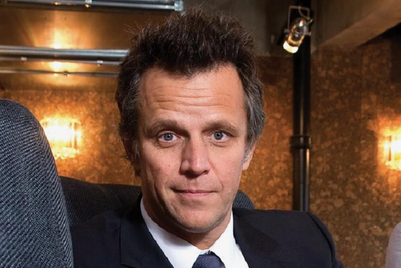
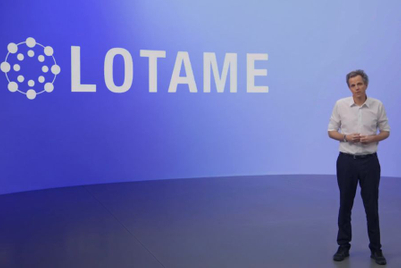
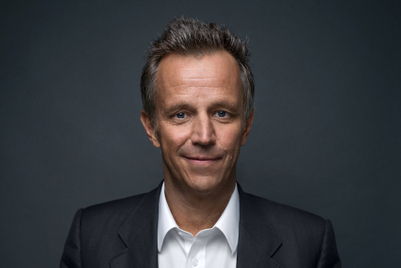
.png&h=268&w=401&q=100&v=20250320&c=1)

.jpg&h=268&w=401&q=100&v=20250320&c=1)
.jpg&h=268&w=401&q=100&v=20250320&c=1)
